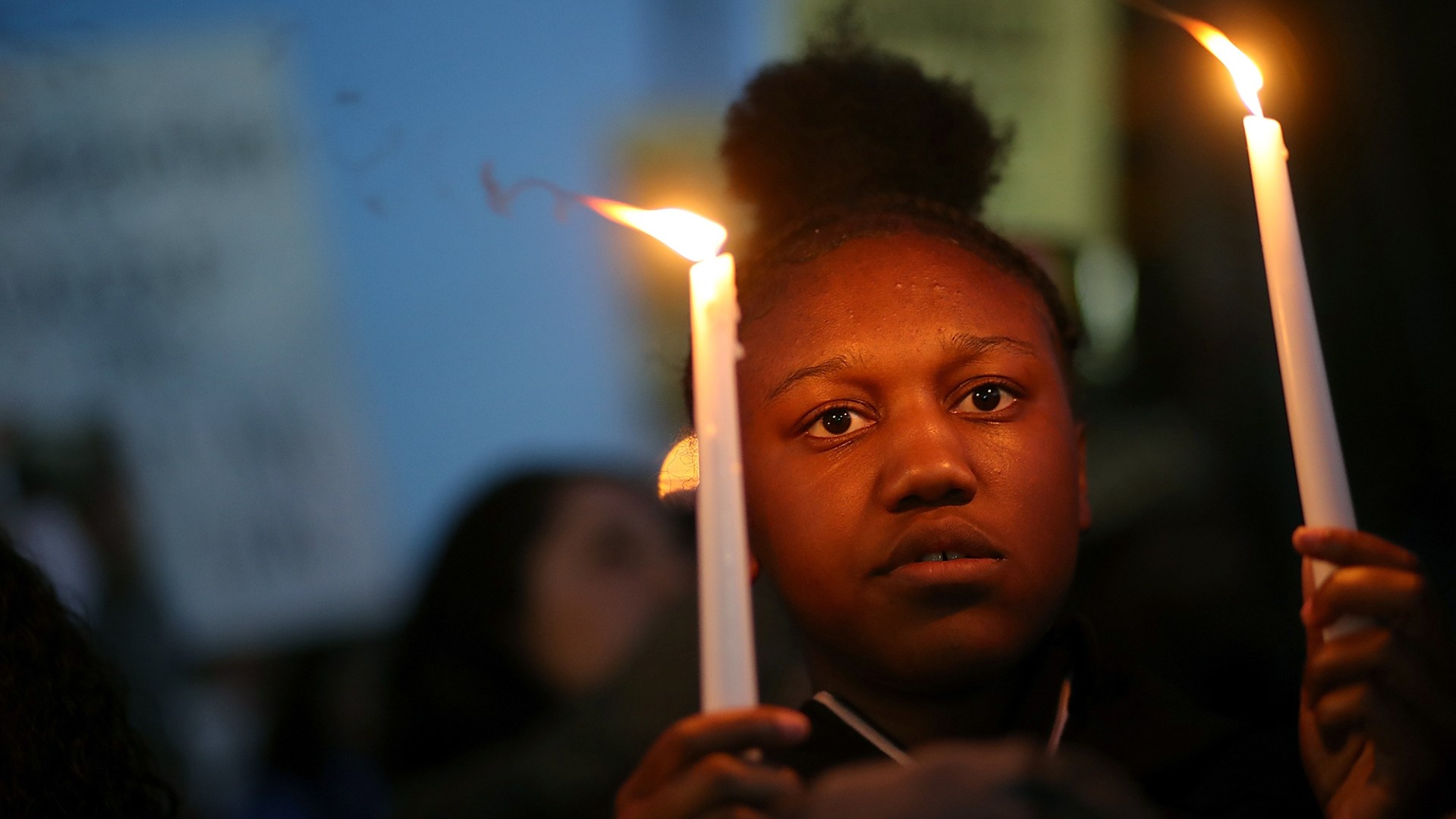In 1846, the abolitionist Samuel Brooke published a book called Slavery, and the Slaveholder’s Religion; as Opposed to Christianity, in which he condemned human bondage as “the violation of every principle of human brotherhood, of natural right, of justice, of humanity, of Christianity, of love to God and to man.”
Like so many of his fellow abolitionists, Brooke wanted to prick the conscience of a religious tradition that sang songs of praise to God on Sunday and whipped slaves on Monday. In Reconstructing the Gospel: Finding Freedom from Slaveholder Religion, writer and activist Jonathan Wilson-Hartgrove attempts to take up this mantle, arguing that today’s white evangelical movement remains beholden to a racial ideology that hijacks and distorts the true Christian faith.
Wilson-Hartgrove doesn’t approach the topic of race as an expert, though his experience moving into a majority-black neighborhood in Durham, North Carolina, gives him a proximity not shared by many of his fellow white Christians. Yet he offers a remonstrance that many white Christian leaders desperately need to hear. He traces fault lines in American Christianity that have roots in the nation’s founding and shows how white evangelicals have often baptized white supremacy either by endorsement or silence.
We are tempted, of course, to assume that we are well beyond our racial tensions, being more than 150 years removed from the Civil War and more than 50 years removed from the passage of landmark civil rights legislation. But significant tensions remain, and systemic racism, more subtle and pernicious than white bed sheets or lynching trees, still causes suffering for African Americans. Wilson-Hartgrove makes a persuasive case that racism still haunts our institutions in ways we are often unwilling to see.
What’s more, it seems that white believers often remain stubbornly indifferent. Wilson-Hartgrove’s point is that “the gospel of white evangelicals hasn’t interrupted our racial habits; it has reinforced them. To be white and Christian in America is to be, on average, more segregated than your unchurched neighbors, whatever the color of their skin.”
This is a difficult but necessary rebuke. It should cause us to fall on our knees in repentance and to lament the ways we have actively and passively contributed to a system that still divides us along racial lines. And we should commit to preaching and living out a gospel that displays the multi-ethnic character of the kingdom of God as described in Revelation 7.
However, while Wilson-Hartgrove’s book offers much to commend, it soon becomes apparent that his vision for “reconstructing” the gospel actually involves redefining the gospel in significant ways. In his opening chapters, Wilson-Hartgrove recalls sitting in a church-sponsored Christmas production and being embarrassed by the pastor who preached on the exclusivity of salvation in Christ. He implies that a gospel presentation based on John 14:6 (“I am the way and the truth and the life. No one comes to the Father except through me.”) is akin to sermons by slave owners preaching the gospel of white supremacy. But the problem for pastors in the antebellum South who baptized a racialized status quo was not that they placed too much weight on justification by faith in Christ. The problem was that they failed to carry that doctrine to its logical conclusions. There is no full and final justice against racial superiority without the bloody cross. In his death and resurrection, Jesus creates the unity that cannot be achieved by any other movements or religions (Eph. 2:11–22). At times, Wilson-Hartgrove seems to reject everything conservative white Christians have ever taught, including a biblical sexual ethic.
Perhaps most distressing is the way in which Wilson-Hartgrove, while rightly critiquing the misguided political approach of the Moral Majority, seems to imply that the way of Jesus leads right to the policy platforms of the Democratic Party. If you’ve been offended, as I have, by sermons comparing the current president to apostles and prophets, you will be just as offended by a book discerning the Holy Spirit’s work in a state legislature’s turn from red to blue. Christians should be engaged in politics, but the answer to an unholy alliance of party and faith is not another unholy alliance of party and faith.
If Wilson-Hartgrove is presenting a truncated gospel, that’s no excuse to keep preaching a truncated gospel of our own. Let those of us who are white continue to listen to and learn from our black brothers and sisters. Let’s work hard, in our own communities, for racial unity. And let’s do it with humility and repentance, longing for the day when every nation, tribe, and tongue is gathered around our King’s throne.
Daniel Darling is vice president for communications for the Ethics and Religious Liberty Commission of the Southern Baptist Convention.
Are we right about this? Off the mark? Share your feedback here.











